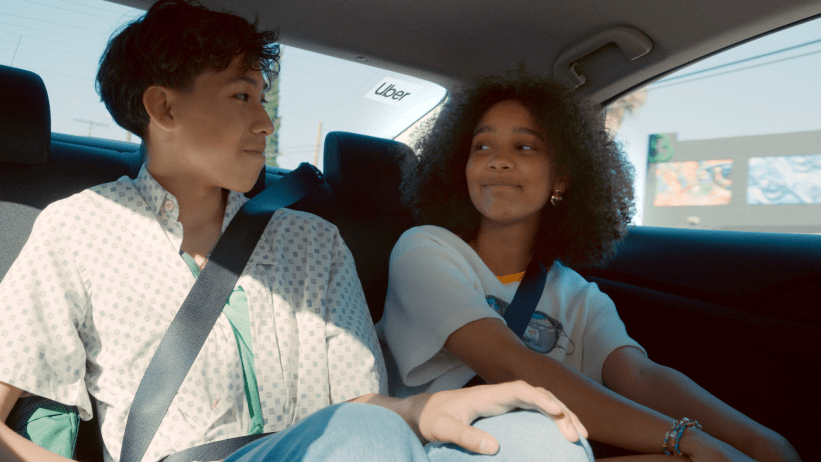Bullying is a word that has almost lost its meaning, because it’s been used so often and under so many circumstances. That’s especially true online, where cyberbullying is used to describe almost any interaction that makes adults uncomfortable — from flaming, gossip, and pranks, to impersonation, slander, and threats.
In her new book, “It’s Complicated,” Hannah Boyd points out that, “the language of bullying often presumes that there’s a perpetrator and a victim. By focusing on blaming the perpetrator and protecting the victim, well-intended adults often fail to recognize the complexity of most conflicts.” She suggests that parents avoid using the term “bullying” unless behavior meets three criteria identified by Swedish psychologist Dan Olweus:
Repetition. What’s the frequency? Even the nicest people hurt others on occasion because they are oblivious or under stress. Bullying involves repeating a behavior even after the perpetrator understands that it’s painful or damaging to another person.
Imbalance. Who has the power? Young people themselves often describe conflict between peers as drama rather than bullying. They seem to understand that bullying involves disproportionate power — a stronger person picks on a weaker one precisely because he cannot fight back effectively. Research confirms that children are 63 percent more likely to be bullied if they have disabilities or perceived differences (such as being gay or overweight).
In situations which meet these three criteria, adults must intervene, because bullying has lasting consequences for everyone involved. Research shows that children who are bullied tend to be lonely, anxious, and depressed. Children who become bullies are also likely to have underlying social and emotional problems that interfere with healthy relationships. Even children who witness aggression are vulnerable to emotional distress and anxiety.
Of course, Boyd acknowledges that online interactions that fall short of bullying can still be hurtful. Girls are more likely to participate in and be wounded by gossip and rumors, especially about looks and sexual behavior. Boys are more likely to participate in pranking — practical jokes that aren’t really funny — and “punking,” which consists of insults and intimidation.
All of this happens offline, too, but online abuse has several unique features. Some people find it easier to be cruel when they don’t have to deal with consequences directly. Also, online humiliation can be deeper, because there are so many witnesses and more long-lasting because it’s difficult to eradicate cyber slurs. Online, the child who is behaving poorly may feel there is no risk of punishment, and the child who is tormented may feel there is no escape.
Parents are the ones who have to consistently reinforce two messages: cruel behavior is always unacceptable, and, in difficult circumstances, healthy people stay focused on what they can control. Boyd recommends Social Emotional Learning as one of the best ways to protect a child from being bullied or becoming a bully. Kids who develop these five capacities are less likely to take out their feelings on others and less likely to become targets.
Self awareness. Help your children recognize and reflect on his own feelings. Just knowing that he feels angry or sad, or frustrated or vulnerable gives a child more options.
Self management. Children aren’t born with self control. They need help in learning to how to insert thought between feeling and action. Children who can’t manage their impulses are more likely to lash out in response to provocation or stress. A child who is able to calm himself and think through a problem is less likely to say or do cruel things and less likely to trigger hostility in others.
Relationship skills. Research suggests that children are less likely to be unkind to others when they have high quality friendships. Some kids make friends easily, but others need coaching. For good advice about helping kids develop strong friendships, see the article at Parenting Science (www.parentingscience.com/kids-make-friends.html.)
Decision making. If a child is miserable because of what others are doing, the most empowering thing a parent can do is help her refocus on what she can do. Although retaliating in kind is tempting, it’s rarely the most effective strategy. Instead, help your child think through different ways of responding to aggression. Sometimes the best option is to redirect attention to what’s positive — the many “likes” instead of the one snarky comment. In other cases, it may make sense to limit contact with people who behave poorly by using the controls available in most social networks or by switching to a network like WeHeartIt, where users collect and share things that inspire them without getting comments from other people. (Other good suggestions are available at endcyberbullying.squarespace.com/what-to-do-if-youre-a-victim.)
Important as it is to talk about these ideas, children benefit more when parents embody them. When parents cultivate their own social and emotional skills, home becomes a sanctuary. Then, if your kids encounter aggression and cruelty online or anywhere else, they’ll know they can turn to you for compassion, insight, respect, strength, and strategy.
Carolyn Jabs raised three computer-savvy kids, including one with special needs. She has been writing Growing Up Online for 10 years and is working on a book about constructive responses to conflict. Visit www.growing-up-online.com to read other columns.
Copyright 2014, Carolyn Jabs. All rights reserved.























